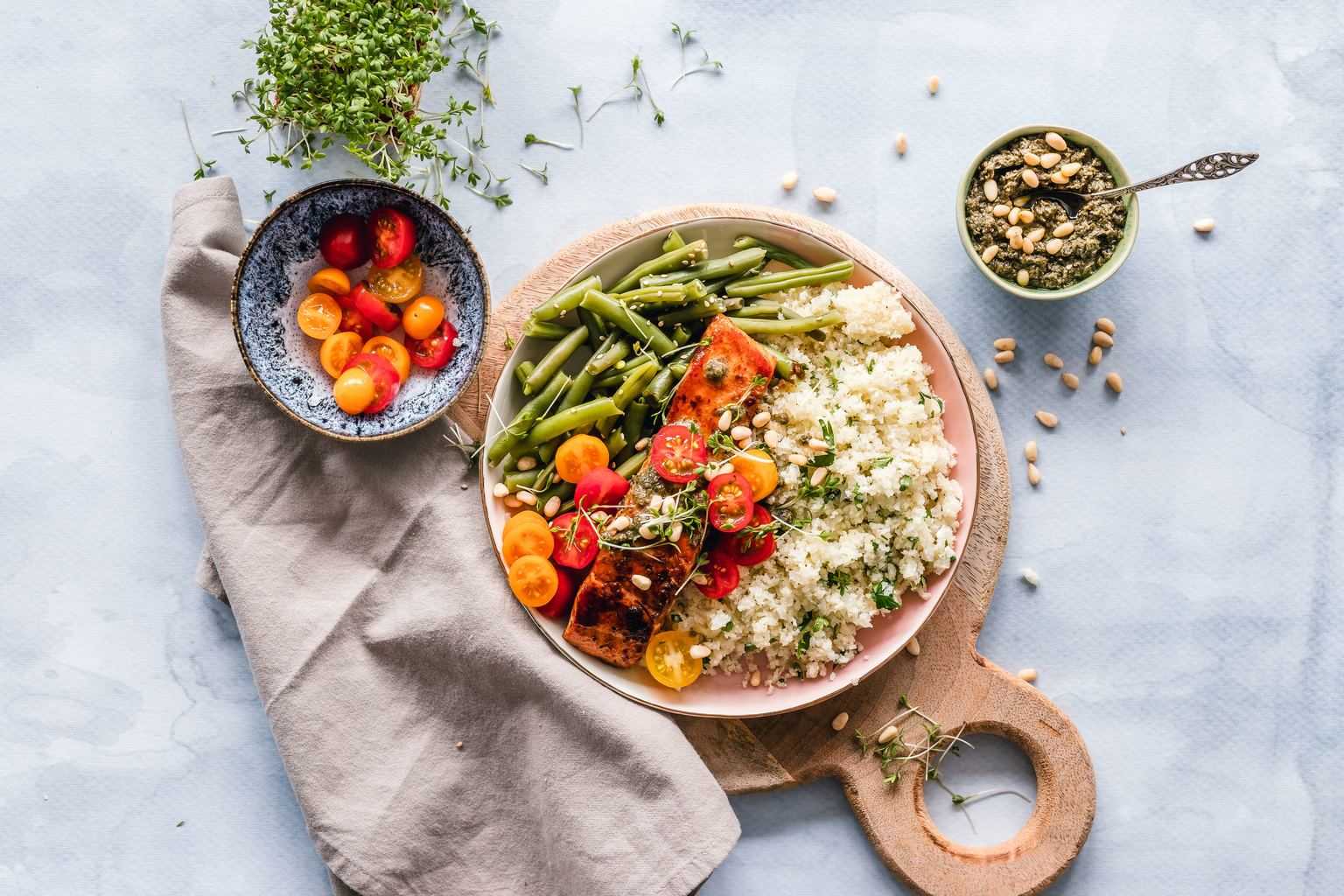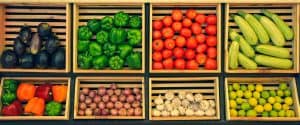- PhentermineLearn more about phentermine and how to get the most from your weight loss journey.
- ResourcesAdditional information and tools to help you make the most of your effort.
- AlternativesLearn more about the most popular weight loss medications and science-backed supplements
Top 20 Sources of Protein for Vegans and Vegetarians
Published on December 9, 2024

Protein is like the superhero of nutrients, keeping our bodies running smoothly. If you’re a man, you need about 56 grams daily, while women should aim for 46 grams to stay on their A-game, even more so if you’re not much of a mover during the day. For the active souls out there, loading up on protein is crucial to keep those muscles beefy and your health in the green zone. But brace yourself – even if you’re guzzling milk and munching on cheese, meeting those protein goals can seem like climbing a mountain. Stick around, and you’ll discover tricks to conquer that peak without breaking a sweat.
So what happens if you are either a vegan or a vegetarian? Should you give up on protein? That, of course, is not an option. But what you can do, is look through these 20 amazing natural protein sources for vegans and vegetarians, and start writing your shopping list for this week!
Try these 20 great sources of protein for every vegan and vegetarian
Tofu
Tofu is produced by pressing together bean curds, which very much resembles the process of cheese making. Tofu might not be the best option for a snack, since it does not have any flavor itself, but it is great to be used in anything else, along with other healthy ingredients. Tofu is known for easily absorbing the flavor of the other ingredients with which it is being mixed. You can add tofu in anything – from your delicious homemade burgers, soups, and salads, to sandwiches, and noodles. 4 oz. of tofu contains around 10 gr of protein, which is pretty good if you ask us (1).
Beans
Since beans are a great source of both protein and fiber, this makes them quite the filling food, if you ask us. In addition, beans contain both insoluble and soluble fiber, as well as, around 7 gr of protein per ½ serving of black beans. By adding beans to your salads, soups, and taco dips, you will be providing a great amount of clean protein coming from a healthy and pretty low-cost natural source. Plus, beans have been scientifically proven to be able to lower your high cholesterol levels, high blood pressure level, and high blood sugar levels (2).
Artichokes
Artichokes are a great protein, and fiber, a low-calorie source that you should not miss out on. Artichokes are also filled with various nutrients, including Vitamin C, folate, magnesium, and potassium, among many others (3). You can add fresh artichokes to your salads, lasagna, spinach, etc. ½ a cup of artichokes has been estimated to contain around 4 gr of clean protein.
Edamame
What edamame actually are, are young, green soybeans that require to be either steamed or boiled before you consume them. They can be eaten as a side-dish, or you can also add them to your salads, burgers, soups, noodles, and whatnot. They can pack with around 8.5 gr protein for a ½ cup of edamame, many fiber and antioxidant, and not to mention a pretty sweet taste (4)!
Tempeh
Similar to tofu and edamame, tempeh as well, comes from soybeans. It is produced by cooking and fermenting soybeans that can be later pressed into patties. Tempeh comes with a sort of nutty flavor that can really improve the taste of your salads, wraps, rice, and sandwiches. In addition, it is filled with natural probiotics that you can really use to keep away any digestion problems away from you. Tempeh is one of the greatest vegetarian/vegan protein sources, providing surmising 12 gr of protein per cup (5)!
Spinach
Take advantage of this leafy great to provide your body with a great number of proteins, apart from other nutrients! Since one cup of spinach is suggested to provide 5 gr protein, you should really not miss out on using more spinach in your meals (6). You can add spinach to your salads, rice, dips, and even pastries to enjoy in its high nutritional value and great taste.
Asparagus
Many nutrients are to be found in asparagus – Vitamin A, C, E, and Vitamin K, folate, potassium, healthy fats, and fibers. But most importantly, what asparagus brings us, are the essential proteins. About 4 gr of protein are hiding inside one cup of chopped asparagus (7)! And the good news is of course that there are many ways that you can use to prepare and gain the proteins that are hiding in your fresh asparagus. You can roast or boil your asparagus, or use it fresh for your salads – the options are endless.
Chickpeas
You would want to start incorporating chickpeas as common as you can in your meals to gain their natural proteins. A ½ cup of chickpeas is considered to contain around 8 gr of protein (8). And chickpeas can be used for so much more rather than just for your delicious homemade hummus. You can add it to your salads, noodle soups, and your baked potatoes to complete your meal of the day.
Nutritional yeast
Nutritional yeast is to be found in the form of powder or flakes. It has a sort of cheesy flavor, so it will go perfectly with your baked potatoes, scrambled tofu, vegan mac n’ cheese and so much more. Plus, nutritional yeast, apart from the many other nutrients that are said to contain, also carry high amounts of protein within itself. One oz. of nutritional yeast is suggested to contain as much as 14 gr of protein which you can really use (9).
Spirulina
Spirulina is found to contain good amounts of magnesium, iron, manganese, potassium, and most importantly – protein. About 80 ml of spirulina are said to contain around 8 gr of clean protein. In addition, spirulina has been proved to be able to protect the human body against cancer, and inflammation, since it contains some pretty powerful antioxidants (10, 11). And do not let this green colored algae frighten you-you can easily add it to your smoothies, and you will never notice its taste!
Ezekiel bread
Ezekiel bread is probably one of the healthiest bread versions on the face of the Earth. It is being made by using wheat, barley, spelled, lentils, soybeans and so much more. It is both delicious and nutritional, containing approximately 8 gr of protein in two slices (12). That, you may wish to admit, is so much more than the usual bread. Make sure that you find a good recipe and bake your bread at home for the best possible health benefits!
Chia seeds
It seems as if there is nothing that the chia seeds cannot do. These small seeds are very low-calorie in addition to being highly nutritional. Just 2 tablespoons of chia seeds will provide around 5 gr of protein (13). And chia seeds can be used for so much more than just chia pudding. You can also use chia seeds to add to your salads, soups, oatmeal, etc.
Oats
Oats can be used to prepare a power breakfast in the morning that will keep your hunger satisfied in the long run. Oats also represent an easy and natural way to introduce more proteins in your diet. Half a cup of oats, which can be used to prepare a delicious and filling oatmeal, contain 6 gr of protein (14).
Soy milk
Just because you are vegan or vegetarian, that does not mean that you should say no to milk forever. It just means that you should not drink cow milk, while soy milk, almond milk, and any other natural milk are okay. In fact, soy milk can easily provide the needed proteins for the day, knowing how one glass of non-GMO, fresh soy milk delivers eight amazing gr of protein (15)!
Hemp seeds
In addition to being an excellent omega-3 fatty acids source, hemp seeds are also an important source of proteins. In fact, they are protein source that you should definitely not miss out on since 3 tablespoons are providing you with 13 gr of protein. But only to add to their greatness, hemp seeds are easy to be added to just about anything. You can add them to your stews, smoothies, oatmeal, smoothie bowls and much more (16)!
Broccoli
As if we do not have enough reasons to be in love with broccoli, they offer us one more. One cup of this low-calorie, high-nutritional veggie is packed with 4 gr protein. Now, we have to admit – that does not seem as much, but it is better than nothing which is what most foods are offering us when it comes to protein. Serve your broccoli as a broccoli cream soup, or roasted along your baked potatoes, or even add it to your smoothies – the options are endless, and you can go day after day trying new broccoli recipes.
Peanut butter
You can spread it on toast, add it to your smoothies, oatmeal, homemade cookies, or use it as a dip for your fruits – peanut butter is here to soothe your needs. Well, that and serve the required protein for the day. This is yet another delicious protein-rich source, serving 8 gr protein through two tablespoons of peanut butter (17).
Quinoa
If you are not interested in eating rice, then perhaps you would be interested in trying some quinoa. Although you might mistake it for couscous, know that quinoa is actually more nutritious than couscous for sure. One cup of cooked quinoa is packed with 8 gr of protein, in addition to containing fiber, iron, magnesium, and manganese.
Lentils
According to science, lentils are one of the greatest protein sources out there, serving 18 gr protein per 240 ml cooked lentils (18). But that is not all that lentils have to offer. They also come packed with great amounts of fibers, as well as, slowly digested carbohydrates which means that lentils will help you to stay away from any empty calories throughout the day.
Nuts
Nuts are a great protein source, in addition to being a natural source of many minerals such as iron, magnesium, selenium, calcium, and even some vitamins. Most nuts offer around 5 to 8 gr of protein per one oz. They are our all-time favorite snacks and brain food. Choose from the variety of nuts such as cashew nuts, almonds, pistachios, walnut, etc. to keep it interesting and still get your protein for the day.
Conclusion
Satisfying your daily needs for protein has never been easier. All that you have to do is know what the right protein sources for you are and you will never fail to get the protein that you need for the day. Make sure that your meal plans include many broccoli, soy milk, asparagus, nuts, seeds, spinach, artichokes, and more of our recommended great protein sources for vegans and vegetarians!
References
(1) https://www.oprah.com/health/tofu-as-an-alternate-source-of-protein-nutrition-advice
(2) https://www.ncbi.nlm.nih.gov/pubmed/19939654
(3) http://artichokes.org/recipes-and-such/health-and-nutrition
(4) https://nutritiondata.self.com/facts/vegetables-and-vegetable-products/9872/2
(5) https://www.healthline.com/nutrition/tempeh
(6) https://www.ncbi.nlm.nih.gov/pubmed/27353735
(7) https://www.healthline.com/nutrition/asparagus-benefits#section1
(8) https://www.onegreenplanet.org/natural-health/chickpea-and-protein/
(9) https://nutritiondata.self.com/facts/custom/1323565/2
(10) https://nutritiondata.self.com/facts/vegetables-and-vegetable-products/2765/2
(11) https://www.ncbi.nlm.nih.gov/pubmed/12769719
(12) https://nutritiondata.self.com/facts/custom/2129099/2
(13) https://www.ncbi.nlm.nih.gov/pmc/articles/PMC4926888/
(14) https://nutritiondata.self.com/facts/breakfast-cereals/1597/2
(15) https://www.onegreenplanet.org/natural-health/heres-why-plant-based-milks-do-a-body-good/
(16) https://nutritiondata.self.com/facts/custom/1352377/1
(17) https://www.ncbi.nlm.nih.gov/pmc/articles/PMC4711439/
(18) https://nutritiondata.self.com/facts/legumes-and-legume-products/4338/2


